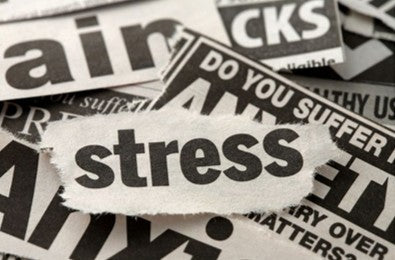
Stress Awareness Month: 5 Ways to Start Managing Stress
April is Stress Awareness Month, a time dedicated to recognizing the impact of stress on our physical and mental health. With the fast pace of modern life, it's easy to feel overwhelmed. But acknowledging stress is only the first step—learning to manage it effectively is essential for maintaining our overall wellbeing. Here are five ways you can start better managing stress this month and beyond.
1. Practice Mindfulness
Mindfulness is the practice of focusing on the present moment without judgment. When you’re stressed, your mind tends to spiral, jumping from one worry to another. Mindfulness exercises can help bring your attention back to the here and now.
You don’t need to dedicate hours to mindfulness practices; even just 5-10 minutes a day can make a noticeable difference. Apps like Headspace or Calm provide guided sessions for beginners, while simple breathing exercises (such as the 4-7-8 technique) can be done anytime, anywhere.
2. Exercise Regularly
Exercise is one of the most effective ways to reduce stress. Physical activity increases the production of endorphins—chemicals in the brain that act as natural painkillers and mood elevators. Even a short walk, a yoga session, or a solo dance break can help release tension.
The best part is that exercise doesn’t need to be intense to be effective. Find an activity you enjoy, whether it’s a leisurely walk, swimming, or a fitness class, and aim for at least 30 minutes a few times a week.
3. Set Healthy Boundaries
Many of us experience stress because we overcommit ourselves. Whether at work, in social settings, or within our families, we often say yes to obligations that only add to our stress. Learning to set healthy boundaries is a crucial step in managing stress.
Start by recognizing when you feel overwhelmed, and practice saying "no" when necessary. Setting boundaries means prioritizing your well-being over others’ unrealistic expectations. Communicate your limits clearly and kindly, and try not to feel guilty about your decision.
4. Prioritize Sleep
Sleep is one of the most underrated tools for stress management. When you’re sleep-deprived, your body becomes more vulnerable to stress, making it harder to cope with daily challenges. Aim for 7-9 hours of quality--emphasis on "quality"--sleep each night to recharge your body and mind.
Establish a relaxing bedtime routine, such as limiting screen time before bed, reading a book, or practicing light stretching. Also, avoid caffeine or heavy meals in the evening, as these can disrupt your sleep cycle.
5. Connect with Others
Humans are social creatures, and building strong connections can significantly reduce feelings of stress. Sharing your thoughts and emotions with friends and family can help you process feelings and gain perspective. If you don’t feel like talking to someone close to you, consider seeking professional help. Therapists, counselors, or a support group can offer valuable coping strategies for managing stress and improving mental health.
Stress is a natural part of life, but when it becomes overwhelming, it’s important to take action. This Stress Awareness Month, make a commitment to prioritize your wellbeing by integrating these five stress management techniques into your daily routine. With consistency and patience, you can create a healthier, more balanced life. Remember, stress management is not about eliminating stress entirely, but learning how to respond to it in healthier ways.
